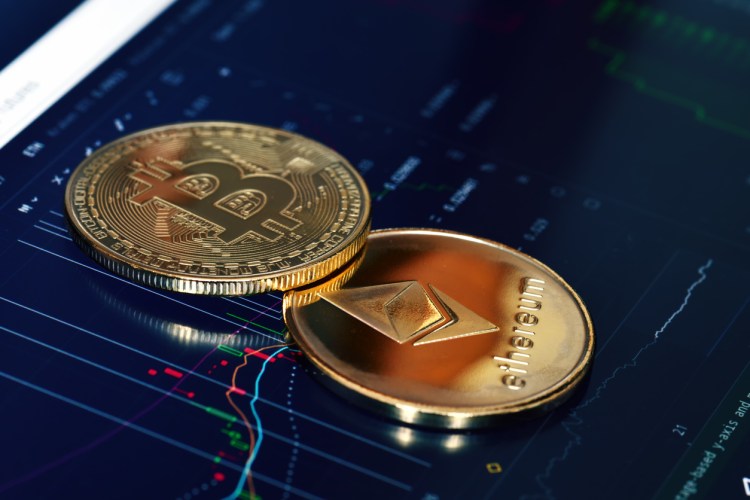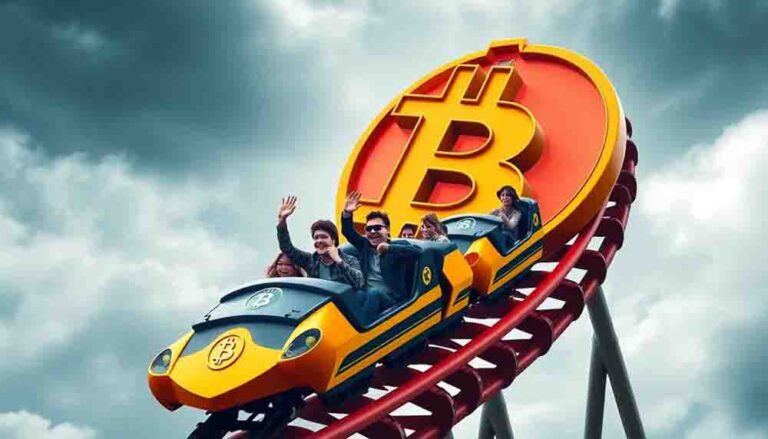What Is Ripple?
Note: This post may contain affiliate links, and we may earn a commission (with No additional cost for you) if you make a purchase via our link. See our disclosure for more info. The crypto world is constantly changing. This content is for informational purposes only and not financial, legal, or professional advice So, please verify the info on the cryptocurrency provider’s websites.
Ripple is a blockchain tech company, born in 2004, that's all about shaking up cross-border payments. With its XRP cryptocurrency, it aims to make transactions faster and cheaper—like, really fast, only taking 3 to 5 seconds. They tout themselves as a bridge currency, but yeah, they've got legal drama with the SEC. And let's not forget their partnerships with big banks. Want to know how it all works? Keep going.

Ripple is a tech company that's not just about flashy buzzwords or crypto hype; it's on a mission to create a world without economic borders. Founded back in 2004 as RipplePay and rebranded in 2013, Ripple Labs is the brainchild behind some serious blockchain wizardry. With over 900 employees spread across more than 90 countries, they're not just a small-time operation. They're backed by big-name venture capitalists and strategic investors, which is always a good sign.
At the core of Ripple's offerings is the XRP Ledger (XRPL), a decentralized public blockchain. This isn't some clunky dinosaur of a system either. Ripple's tech enables transactions that are faster than your average coffee order—3 to 5 seconds, to be exact—with fees that barely register. They're all about tokenization too, supporting everything from stablecoins to NFTs. And forget about mining; they've gone with a consensus mechanism that's kinder to the planet. Ripple enables global financial institutions to tokenize value, making their solutions accessible to a wider audience. Ripple's network leverages a quorum-based consensus protocol to validate transactions efficiently. Unlike typical stablecoins, XRP offers low volatility without being directly pegged to external assets.
Ripple's XRP Ledger delivers lightning-fast transactions in just 3 to 5 seconds, redefining cross-border payments with eco-friendly tech.
XRP, their native cryptocurrency, acts as a bridge currency for cross-border payments. With a total supply of 100 billion XRP, Ripple holds a hefty chunk of that—55 billion, to be precise. They've got a solid plan to manage supply through escrow, ensuring liquidity and efficiency without turning the crypto world upside down.
RippleNet is their flagship cross-border payment solution, used by banks and institutions. They've even got On-Demand Liquidity (ODL) that utilizes XRP to provide instant liquidity without pre-funding. And they're serious about partnerships, working with heavyweights like Bank of America and Santander.
Of course, it's not all smooth sailing. Ripple has had its fair share of legal troubles, including a hefty fine from the U.S. DOJ and ongoing lawsuits from the SEC regarding XRP's classification. They claim to prioritize compliance, but in the wild west of crypto, that's easier said than done.
Frequently Asked Questions
How Does Ripple Compare to Bitcoin and Ethereum?
Ripple, Bitcoin, and Ethereum? Totally different worlds.
Ripple's all about speed, settling transactions in about four seconds. Bitcoin? Try ten minutes. XRP is pre-mined, while Bitcoin and Ethereum rely on mining.
Ripple focuses on institutional payments, leaving Bitcoin as a digital gold wannabe and Ethereum stuck in DeFi chaos. With lower fees and energy use, Ripple's like the efficient kid in class.
But don't forget, it's still tangled in legal drama.
Is Ripple Secure for International Money Transfers?
Is Ripple secure for international money transfers? Well, it's got a solid setup.
Using a decentralized ledger, it cuts out middlemen. Transactions happen in seconds, and the fees? Pennies.
Its consensus protocol means no double-spending nonsense. Plus, it's got a bunch of trusted validators keeping things honest.
Transparency is key here—every transaction is on display.
Can I Buy Ripple on Major Exchanges?
Absolutely, you can buy XRP on major exchanges.
Binance, Coinbase, Kraken—it's a smorgasbord of choices! Want low fees? Go Binance. Prefer a user-friendly interface? Coinbase has you covered.
Just watch out for regional restrictions; not all exchanges are available everywhere.
Payment methods? Think bank transfers, credit cards, and even some PayPal options.
Just remember, security matters! Use two-factor authentication and cold storage if you want peace of mind.
Happy buying!
What Are Ripple's Future Growth Prospects?
Ripple's future? Well, it's looking pretty bright, if not a bit chaotic.
With banks lining up for faster payments and CBDC tech in the works, they're not just sitting pretty. The $250 million creator fund for NFTs? Talk about ambition!
Sure, they've got a legal battle with the SEC hanging over them, but recent wins spark hope.
Will it be smooth sailing? Only time will tell, but the ship's moving.
How Does Ripple Handle Regulatory Challenges?
Ripple tackles regulatory challenges like a boxer in the ring—dodging punches, throwing a few of its own.
They've navigated fines, lawsuits, and SEC scrutiny with a mix of legal strategies and some clever maneuvering. The infamous Hinman emails? A nice little gift that weakened the SEC's arguments.
With leadership changes at the SEC, they're feeling less pressure. But let's be real: the crypto scene is still a wild, unpredictable beast.










